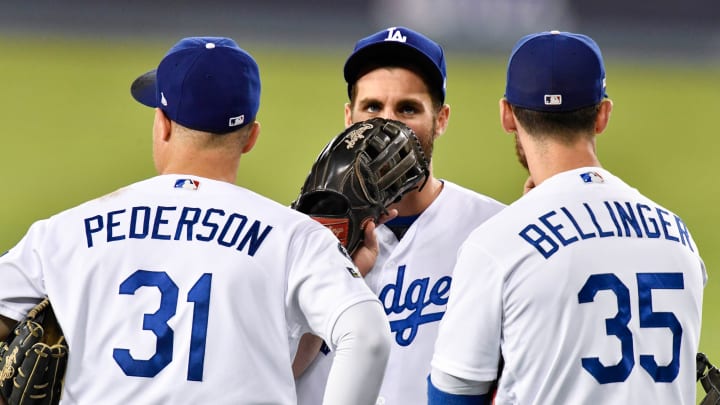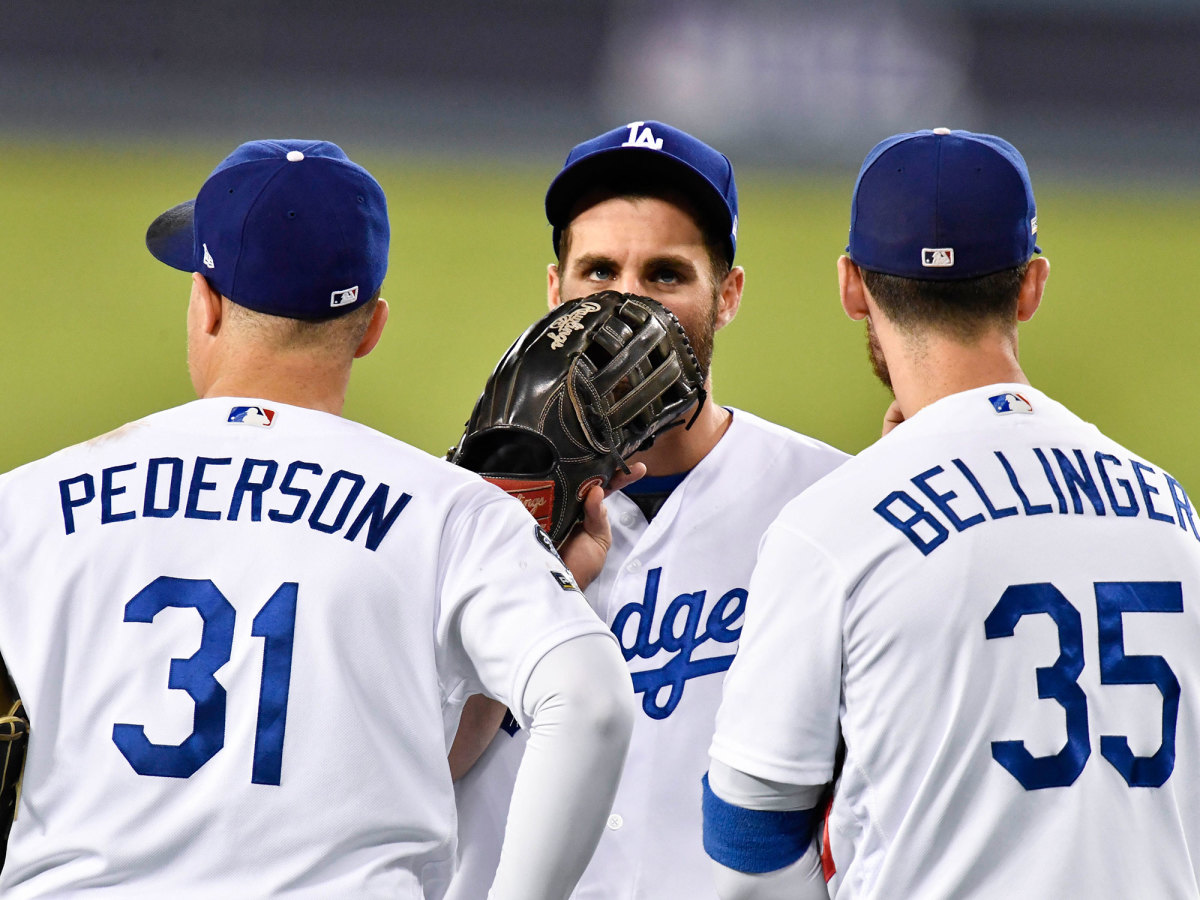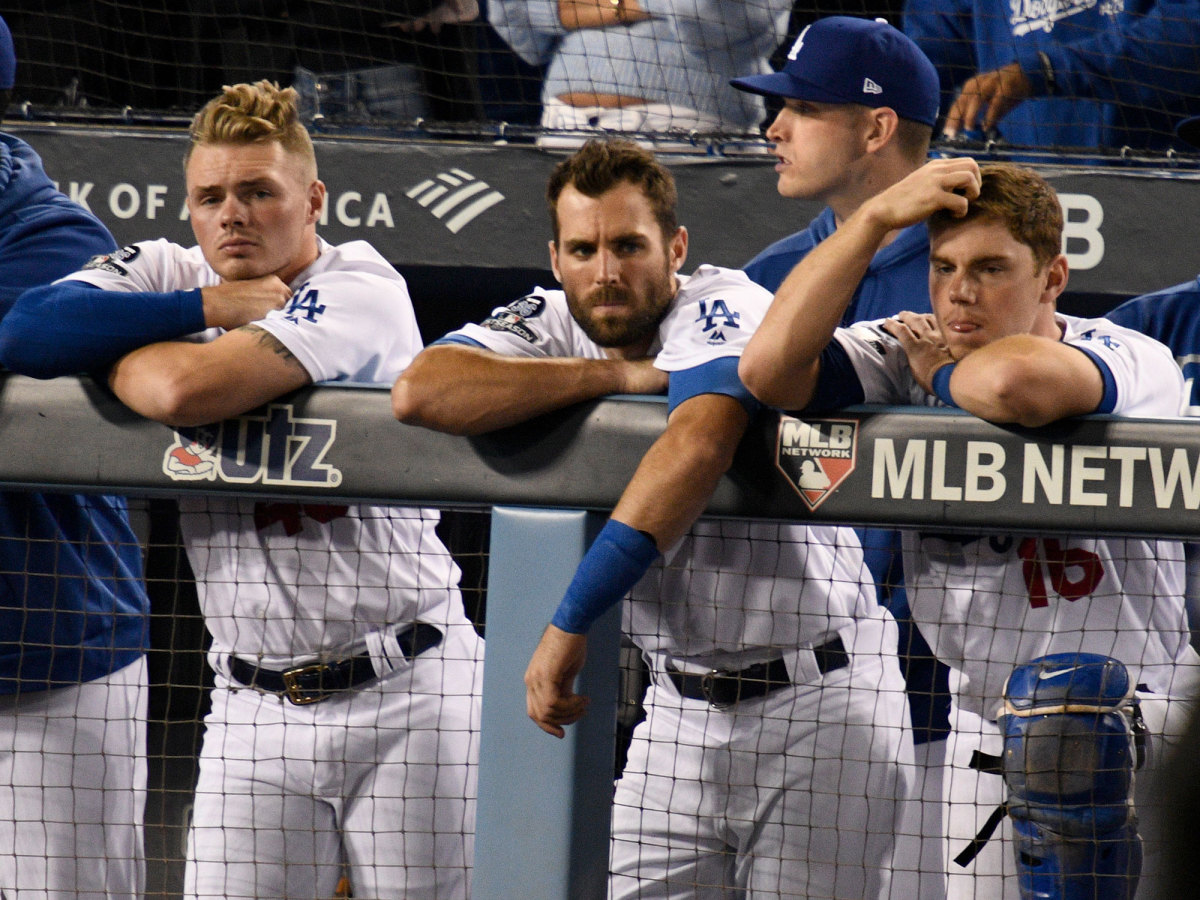Dodgers' Quiet Offseason Is Perfectly Defensible

The Dodgers’ offseason has been perfectly fine.
It does not take much to see it this way. Start with some foundational information: The Dodgers entered as the favorite to win the NL West, and a strong candidate to win more than that, and they remain the favorite to win the NL West, and a strong candidate to win more than that. This winter was never going to create any new holes for them; they had relatively few departing free agents, and they have considerable young talent on the rise, anyway. Add the actual record of their offseason action: Their first move was to add Blake Treinen, capably addressing last year’s lone problem area, the ‘pen. They went on to make the no-risk-potential-reward signings of Jimmy Nelson and Alex Wood. They have not done anything else, but if that concerns you, well, circle back to that foundation. Did they have to do anything else? It’s… fine!
But an offseason is full of material besides the foundation and the raw action. There’s all that fits in between; there’s what a team could have done, what it claimed that it tried to do, how all of this matches what it did last season and the one before and the one before. There’s context. And to evaluate the Dodgers’ offseason in context is to see a winter that had room to be unusual.

It started with talk that had been rare for the team under Andrew Friedman, rumors about the race for not just one of the best available free agents, but for each of Stephen Strasburg and Gerrit Cole and Anthony Rendon. This was new: The Dodgers’ previous few winters involved minimal (reported) engagement with premium free agents. That wasn’t the condemnation that it could have felt like for other teams; they’d still spent money, and, above all, they’d won anyway. But those wins had not included a World Series, even after seven consecutive division titles, and so it did not seem wild to wonder if all of this had led them to a tipping point. Simply by seriously talking about Strasburg or Cole or Rendon, they’d established an interest in a different move here. They just didn’t make one.
It was not that the Dodgers didn’t come forward with at least one serious offer. (They did, to Cole, and it is hard to be too frustrated about being the runner-up next to $324 million from the Yankees.) And it was not that the Dodgers had a serious need for any of the three priciest free agents. If anything, it’s notable how much they didn’t: Even after the loss of departing free agents Hyun-Jin Ryu (Toronto) and Rich Hill (Minnesota), the rotation is still deep, and Rendon would have necessitated some roster maneuvers around Justin Turner. There was not a fatal flaw here. There was just the context.
More context: The Los Angeles Times interview with president and part-owner Stan Kasten that insisted everything was going as it should and fans were satisfied and the club wanted to win, read as rather defensive. He said he believed the team would go over the luxury tax threshold—heartening in theory, for those dying for a big move, yet puzzling in practice, as the payroll was then some $38 million below the $208-million line, with few players still available who could come at such a price point for 2020. (The interview also included, in response to a question about how Kasten defined “success”—if he was content to win the division or wanted to win the World Series—a line that started, “There are metrics in business that are mostly private that we look at, and I’d say we feel successful there,” which makes it hard to trust that the primary measure of success is anything other than “money,” but that’s neither here nor there.) And more context: The as-of-now unfulfilled talk of trades for Mookie Betts or Francisco Lindor or Kris Bryant, rumors that seem to indicate the team is still interested in more. It all amounts to a team that has indicated it wanted to do more this winter and has somehow done less.

All of this makes it seem reasonable to feel that the offseason has not been fine. It is the natural order for frustration—a gap between expectations and reality, between what fans were looking for and what they have actually seen. Of course, the winter is not over; there’s still almost a month until pitchers and catchers report, and if a blockbuster trade unfolds on February 1, then this dead stretch of December and January will be remembered as only a test of faith. But as it stands now, there is no guarantee anything is coming, and it leaves a situation that feels somewhat awkward to unload.
The Dodgers are still the natural favorite in the NL. It is not only that they have so much talent, but that they have so many ways for it to be organized, with baseball’s most enviable depth and seemingly infinite configurations for their plug-and-play roster. Their position in the division looks so assured that it feels almost impossible for anyone to mount a challenge; Arizona’s winter additions have been significant, but even so, it’s hard to see those as moves for a role other than the wild-card. The Dodgers can afford the price of a quiet winter, such that one exists for them, and given the emphasis on team construction for the playoffs, it’s worth a note that the team on April 1 does not have to be the team on October 1, either. It’s fine. Their offseason has been fine.
Of course, “fine” can still be disappointing, or frustrating, or cutting commentary unto itself on the fact that it is not “great.” There’s context to be considered. But still: It’s fine. It does not take much to see it this way.
